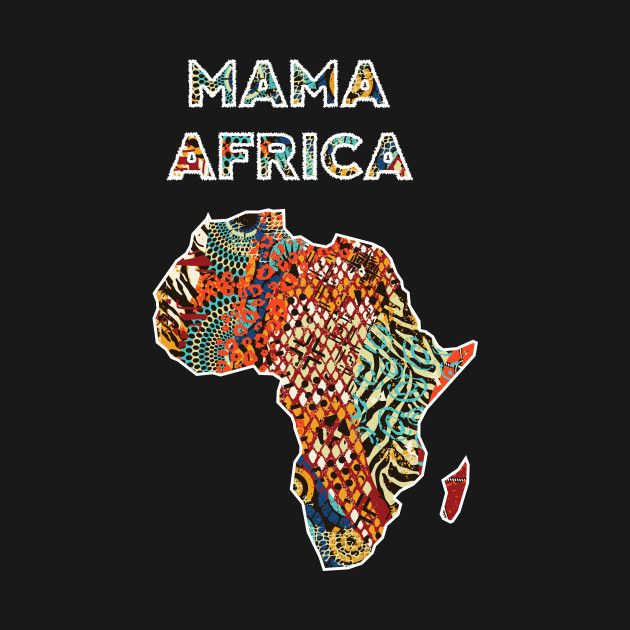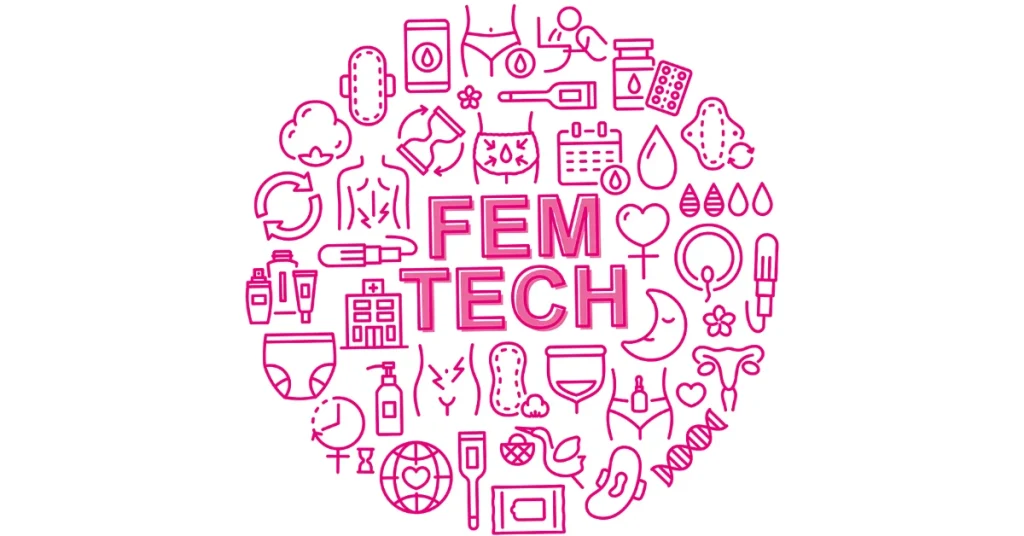By Monica G. Ng’aru

The African startup ecosystem has seen a rise of female and male founders innovating solutions tailored to bring better healthcare to women across Africa. As seen above, there are numerous types of solutions globally working to provide access to quality healthcare to women. In Africa, the following are the vertical and a highlight of countries within regions within Africa in which these solutions are most popular.
Classification of FemTech Solutions in Africa
- Sexual Reproductive Health (SRH):
- Women SRH is a crucial aspect of women’s well-being. FemTech solutions in Africa often include mobile applications that track menstrual cycles, offer personalised health insights, and provide information on menstrual hygiene. These applications help women manage their reproductive health effectively.
- Fertility and Family Planning:
- Fertility tracking apps and online platforms are increasingly popular in Africa, aiding women in monitoring ovulation cycles and optimising conception efforts. Some FemTech solutions also focus on educating women about family planning methods and reproductive health, empowering them to make informed choices.
- Pregnancy and Postpartum (Maternal & Neonatal) Care:
- FemTech addresses the entire spectrum of the reproductive journey, offering applications and devices that guide women through pregnancy, childbirth, and postpartum care. These solutions provide valuable information, track foetal development, and offer postpartum fitness and nutrition advice including neonatal care.
- Women’s Wellness and Fitness:
- Fitness and wellness applications designed specifically for women cater to their unique health and fitness needs. These apps often include guided workouts, nutritional guidance, and mental health support, contributing to overall well-being.
- Telemedicine and Virtual Consultations:
- Telemedicine platforms have become integral to FemTech, enabling women to access healthcare services remotely. Virtual consultations with healthcare professionals, especially in rural areas, bridge the gap in healthcare accessibility.
- AI for women health;
- AI is being utilized by some startups to come up with solutions around diagnostics of NCDs such as breast cancer which is helping women access better, affordable and quality healthcare fast.
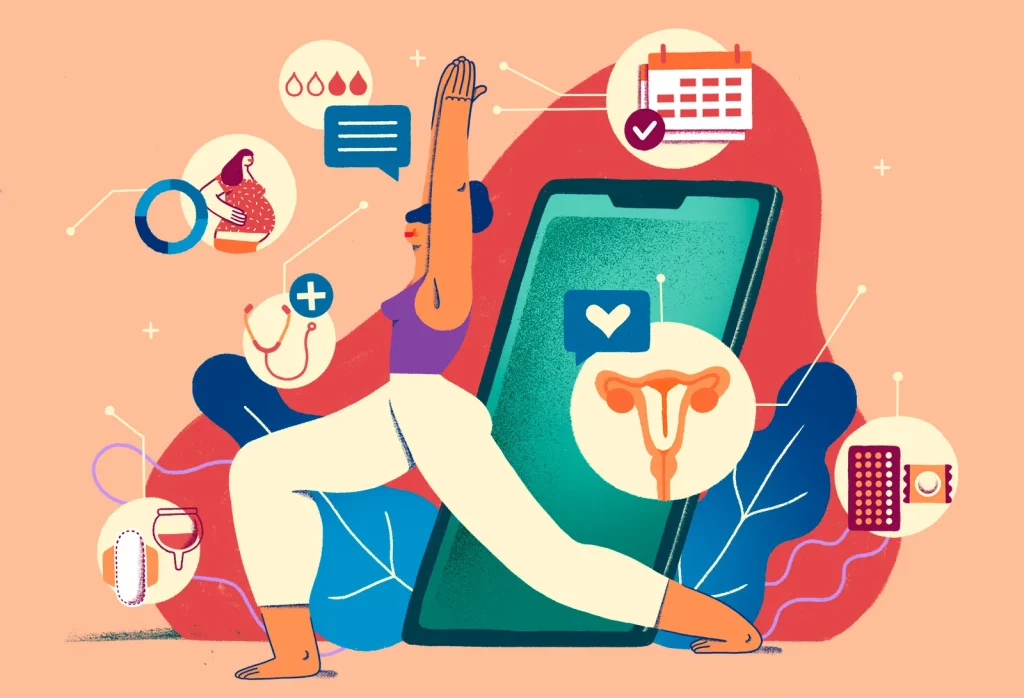
Geographical Distribution:
- West Africa:
- In West Africa, FemTech solutions have gained traction in countries like Nigeria and Ghana. These nations see a rise in mobile app usage for menstrual health tracking, fertility management, and maternal healthcare.
- East Africa:
- Kenya and Tanzania are at the forefront of FemTech adoption in East Africa. The region witnesses an increasing number of startups focusing on maternal health, family planning, and telemedicine.
- Southern Africa:
- South Africa, with its advanced healthcare infrastructure, leads FemTech adoption in the Southern African region. The country sees a diverse range of FemTech solutions catering to various verticals e.g biotech.
- North Africa:
- Egypt and Morocco have seen a rise in FemTech startups, with a focus on bridging healthcare gaps for women. Telemedicine and fertility tracking apps are gaining popularity in these nations.
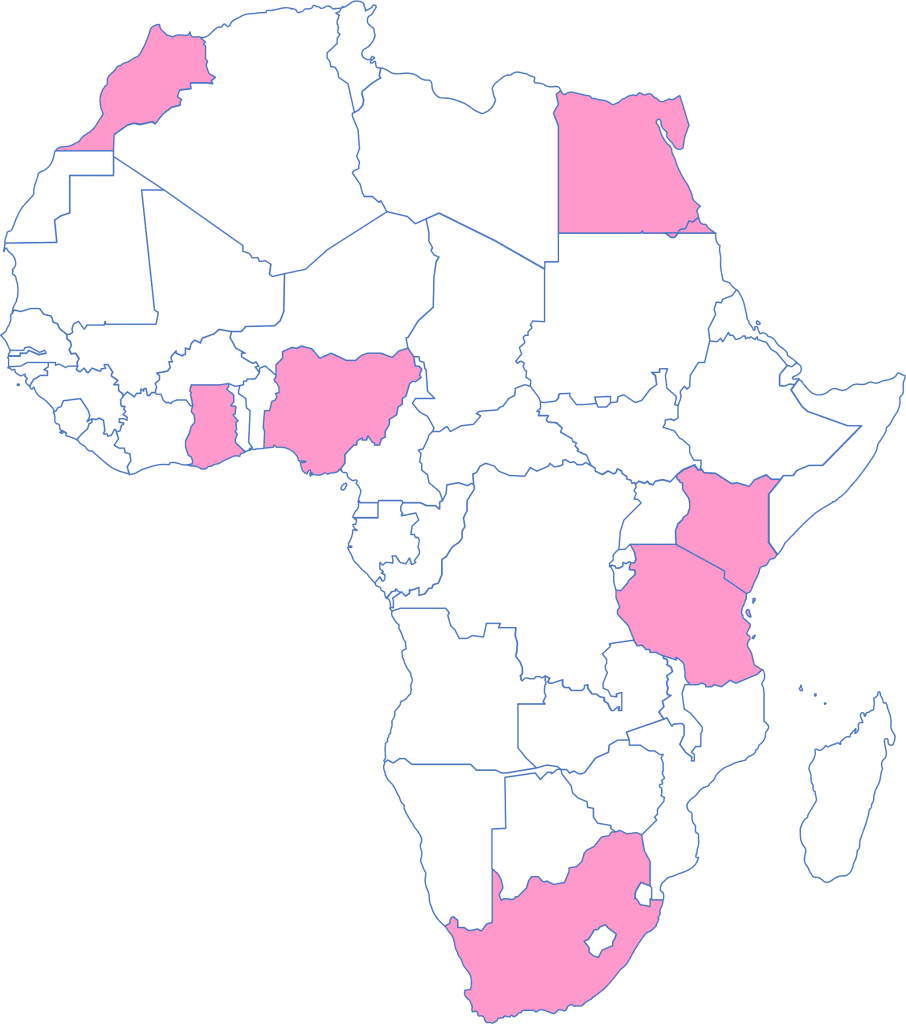
FemTech solutions in Africa play a pivotal role in addressing women’s health challenges and promoting overall well-being. The diverse range of verticals, from menstrual health to telemedicine, demonstrates the versatility and adaptability of FemTech in meeting the unique healthcare needs of women across different regions of the continent. As technology continues to advance, the FemTech sector in Africa is poised to make significant contributions to women’s healthcare, empowerment, and societal progress.
African Femtech Startups
According to Traxcn, 73 FemTech startups in Africa. However, we believe there are more that are up and coming. Most of these startups are in their early stage. Below is a snapshot of startups creating different types of innovations for African women (and children).
| Startup | Solution type | Description |
| e-Commerce, Telemedicine & SRH education | An Ethiopian healthtech startup leveraging technology in establishing a health ecosystem for women; from period & pregnancy tracking to e-pharmacy and telehealth tailored for women’s needs. | |
| Luna | Telemedicine, e-Commerce | A Rwandese healthtech virtual platform that connects users to various healthcare specialists such as OB-Gyn, nutritionists, therapists amongst other women healthcare specialists. Users can also get access to an e-commerce platform |
| Maternal health | A Kenyan medtech startup launched the Wema breast pump, which allows mothers to pump breast milk in any environment. Wema is discreet enough to fit underneath clothing, rechargeable and battery-operated, and equipped with breastmilk storage. | |
| Maternal health | A Kenyan healthtech platform that enables mothers to track their pregnancies and get knowledge every step of the way for the full term plus 8 weeks postpartum care. | |
| AI for health | A South African startup that merges biotech with Artificial intelligence to develop low cost live biotherapeutics as preventative and therapeutic antibiotic alternatives for Bacterial Vaginosis (BV) treatment. | |
| SRH, Fertility, Telemedicine | A South African medtech startup revolutionizing gynaecological care through affordable, easy-to-use devices powered by telehealth, connecting local primary healthcare providers with OB/GYN specialists to accelerate diagnoses. | |
| SRH, FMCG, Education | A Kenyan medtech company manufacturing and selling sanitary pad called Nia with 46% more absorbent than leading brands. They plan to add pantiliners, reusable liners, menstrual cups, maternity pads, and adult diapers. Have a hotline and chatbot that provide trusted, rights-based answers to health questions and connect callers to local or digital health resources, acting as a health concierge. | |
| SRH, e-Commerce | A Nigerian healthtech startup with a mobile and web app that provides young people, especially women, with anonymous and discreet access to SRH and primary health products and services, with emphasis on prevention and management of sexual abuse, drug abuse, teenage pregnancy & HIV/STDs, by accessing contraception, providing them access to trained counselors and medical personnel, and other health products. | |
| SRH, e-Commerce | A Rwandese healthtech marketplace specifically for women’s health. The e-commerce platform delivers a huge range of products from menstrual care to contraceptives, sexual health testing, pharmaceuticals, beauty products and much more. | |
| Neonatal health, Education | A Nigerian healthtech startup with The Omomi Smartphone app which is a health and social platform that helps parents track their child’s immunization status, manage diarrhea at home with interactive DIY platform and access to speak to doctors as well as other parents. It also provides a quiz which gives parents simple health education knowledge. | |
| Telemedicine, e-Commerce | A Nigerian integrated remote monitoring and diagnostics Telemedicine & health management solution which provides point of care screening, access to medical providers, access to medicines and support for continuous care, prioritizing women’s health and treatment of NCDs | |
| AI for health, SRH | A Ugandan medtech startup aiming to battle cancer with a range of impressive products and services, including non-invasive self-testing kits that utilize machine learning and AI to diagnose cervical and breast cancer. Drone-powered transportation means that cervical cancer specimens can easily be transported from remote, rural villages directly to laboratories. | |
| SRH, Fertility & Telemedicine | A Nigerian healthtech startup. Home to the chatbot Grace, to offer female health services across East and West Africa. The chatbot helps girls and women with a range of women’s issues, from menstrual cycle tracking, pregnancy and fertility resources, and insights into sexual health and contraceptives. | |
| Nextwear Technology | Wearables | A Nigerian medtech startup innovating a smart bra that can be used at home to detect breast cancer in its earliest stages. |
| SRH, Education | A South African healthtech startup with a menstrual cycle tracking app that allows women to track and predict when to expect their next period. | |
| Menstrual products | A Kenyan medtech company providing on-demand, affordable sanitary pads using their own automated dispensers and eco-friendly incinerators to burn the waste, keeping girls in school, women working, and the environment safe. The PPE incinerators incinerate masks and other light medical waste on-site reducing the spread of infections. |
Supportive Initiatives across Africa.
Approximately half of the world’s population comprises women and girls, yet in comparison to the rest of the population, they are significantly underserved when it comes to access to essential goods and services, and in some other countries, they are unserved. Due to technology and innovation, innovators are able to drive the necessary change to close the gap. Other players in the ecosystem are making the effort to support these innovators through different initiatives:
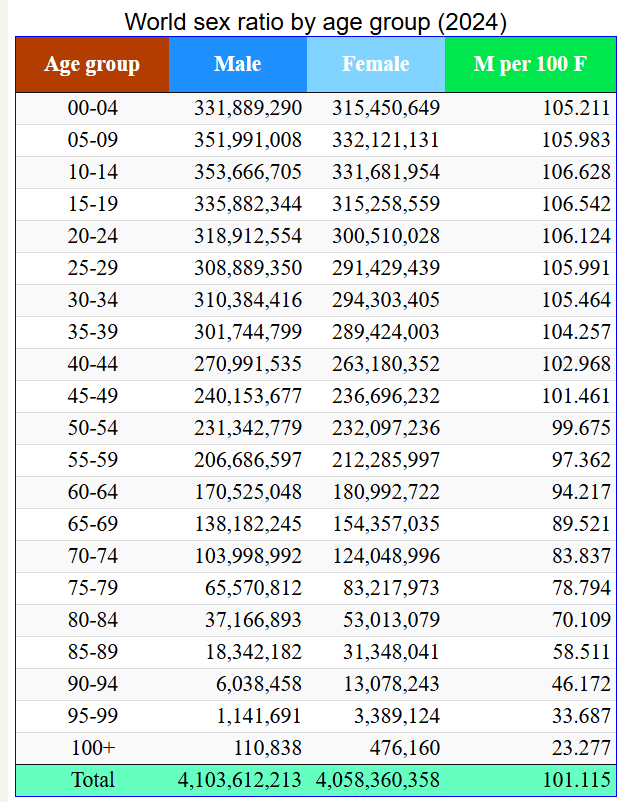
- Support Programs: Incubators and Accelerators like Villgro Africa (Kenya); Healthtechhub (Rwanda) and StartupBootcamp (SouthAfrica) have some programs running for the purposes of supporting the growth and development of femtech founders, their teams and scaling of their solutions across markets. There are also PPP efforts seen in the space, for the government of Rwanda liaising with ESOs to establish the HangaSRH program targeted toward femtech innovators.
- VC thesis on women empowerment: Some VCs and other types of funders, for example Alithea Capital, Mastercard foundation, Jaza Rift, among others, have their thesis and/or impact metrics that guide their investments in either female owned startups or innovations whose main target audience is women.
- Alignment with global initiatives: Most impact focused investors and support organisations utilise UN SDGs as impact metrics. Tied to the point above, those VCs and others that are not gender specific, have aligned themselves with SDG5 (gender equality) in guiding their investments.
- Awareness initiatives: Events, conferences like Women Who Build Africa (WWBA) etc. focus on establishing communities and fostering potential partnership with the aim of supporting women founders and funders for exposure, networking, pitching purposes.
Having this snapshot of what the femtech industry in Africa entails, our next femtech article will be a call to action as to why investors and other stakeholders should invest their resources in the sector now and how we, as Jaza Rift, are best positioned as among the key players in the space.

